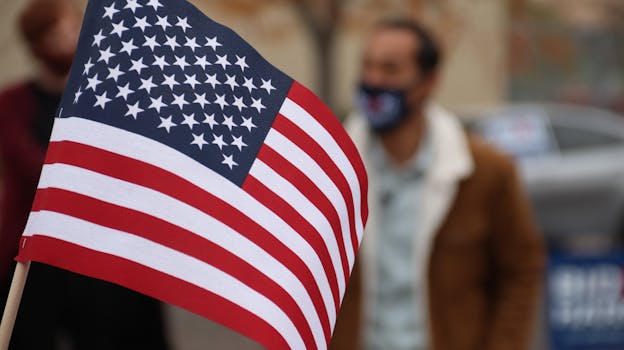
**
The simmering conflict in eastern Democratic Republic of Congo (DRC) has taken a potentially pivotal turn with the announcement of a joint statement following peace talks between the DRC and Rwanda, mediated by the United States and observed by the State of Qatar. This landmark development, following months of escalating tensions and accusations of Rwandan support for the M23 rebel group, offers a glimmer of hope for regional stability and an end to the humanitarian crisis gripping the region. The talks, held in a neutral location, represent a significant diplomatic breakthrough in a conflict that has claimed countless lives and displaced millions.
A Breakthrough in the DRC Conflict: Key Points of the Joint Statement
The joint statement, released late last night, outlines several key commitments from both the DRC and Rwanda aimed at de-escalating the conflict and fostering lasting peace. While details remain scarce, early reports highlight several crucial elements:
- Commitment to Dialogue: Both countries have reaffirmed their commitment to ongoing dialogue and peaceful resolution of their disputes. This signals a shift away from the confrontational rhetoric that has characterized the relationship in recent months.
- Withdrawal of Armed Groups: The statement emphasizes the need for the immediate withdrawal of all armed groups operating in eastern DRC, specifically referencing the M23 rebellion. This demands a concrete commitment from Rwanda to halt its alleged support for the group.
- Joint Security Operations: A crucial component of the agreement focuses on establishing joint security operations between the DRC and Rwanda to combat armed groups and restore stability in the volatile eastern provinces. Details about the scope and implementation of these operations are expected to follow.
- Humanitarian Access: Improved humanitarian access to affected populations has been pledged. This is a critical step towards addressing the widespread suffering caused by the conflict, including malnutrition, disease, and displacement.
- Border Security Cooperation: Enhanced border security cooperation is another key aspect of the statement, aiming to prevent cross-border incursions and the flow of weapons. This will require effective mechanisms for monitoring and collaboration.
The Role of the United States and Qatar
The involvement of the United States and Qatar as mediators and observers is significant. The US, a major player in African affairs, brings significant diplomatic weight and resources to the table. Their commitment underscores the international community's concern about the conflict’s regional and global implications. The State of Qatar’s role, known for its expertise in mediation and conflict resolution, provides a neutral platform for dialogue and trust-building. Qatar's successful mediation efforts in other regional conflicts demonstrate its ability to facilitate constructive engagement between conflicting parties.
Addressing the Root Causes of the Conflict: Beyond Military Solutions
While the joint statement represents a crucial step towards immediate de-escalation, addressing the underlying causes of the conflict is vital for long-term stability. These include:
- Land Disputes: Long-standing land disputes between communities and ethnic tensions have been significant fuel for the ongoing conflict, creating fertile ground for exploitation by armed groups.
- Political Instability: Political instability within the DRC has allowed armed groups to gain a foothold and exploit weaknesses in governance.
- Economic Inequality: Severe economic inequality and lack of development opportunities in eastern DRC contribute to resentment and vulnerability to recruitment by armed groups.
The M23 Rebellion: A Central Issue
The M23 rebellion remains a central issue in the DRC-Rwanda conflict. Accusations of Rwandan support for the group have fueled tensions and hindered previous attempts at peace. The joint statement's emphasis on the group's withdrawal and joint security operations represents a crucial test of Rwanda’s commitment to peace. Failure to disarm and demobilize the M23 could derail the fragile agreement.
International Monitoring and Accountability
International monitoring and accountability mechanisms will be crucial to ensure the successful implementation of the agreement. The UN peacekeeping mission in the DRC (MONUSCO) will play a vital role, alongside other international observers, in monitoring the withdrawal of armed groups and ensuring compliance with the terms of the agreement. Transparency and accountability will be essential for building trust between the two countries and the affected populations.
Challenges Ahead: Ensuring Sustainable Peace in Eastern DRC
Despite the promising joint statement, significant challenges remain on the road to sustainable peace in eastern DRC. These include:
- Verification of Commitments: Independent verification of both countries' commitments is vital to ensure compliance and build confidence.
- Addressing Underlying Issues: Tackling the root causes of the conflict, including land disputes, political instability, and economic inequality, requires a long-term commitment to development and good governance.
- Rebuilding Trust: Rebuilding trust between the DRC and Rwanda, after years of mistrust and conflict, will be a protracted process requiring sustained engagement and dialogue.
- Protecting Civilians: Protecting civilians from violence and ensuring their access to humanitarian aid remain paramount.
The joint statement represents a significant opportunity for peace in eastern DRC. However, the success of the agreement hinges on the commitment of both countries to implement its provisions fully and address the underlying causes of the conflict. The international community, through sustained support and monitoring, has a vital role to play in ensuring that this fragile peace holds. The coming months will be crucial in determining whether this represents a turning point in the long and arduous struggle for peace in the region. This breakthrough demands close observation and continued international pressure to achieve sustainable peace and lasting stability in the heart of Africa.



















